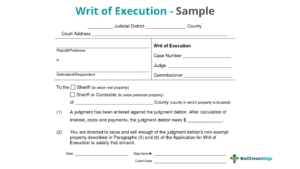what is the maximum amount you can sue for in civil court
What Is Small Claims Court?
Small claims court is a specific legal avenue where individuals and businesses can settle disputes involving relatively small amounts of money. These cases typically involve straightforward matters and are less formal than traditional court proceedings. The purpose of small claims court is to provide a more accessible and expedited process for resolving disputes without the need for extensive legal representation.
what is the limit for small claims court
how much does small claims court cost
The maximum amount you can sue for in small claims court varies depending on the state in which the court is located. The monetary thresholds typically range between $3,000 and $10,000. These limits are in place to ensure that the cases heard in small claims court remain relatively simple and manageable.
Kinds of Cases Heard in Small Claims Court
Small claims court covers a wide range of cases, including business-to-client disputes. For instance, a business might take a client to small claims court for unpaid loans or services. On the other hand, a client might file a claim against a business for breach of contract or failing to return a security deposit. Other cases involve issues like libel, slander, professional malpractice, and personal injury.
Reasons for Pursuing Small Claims
One of the primary reasons individuals opt for small claims court is the relatively small amount of damages involved. These cases are often resolved quickly and at a modest cost. Compared to traditional court proceedings, small claims court offers a less formal environment with simpler rules. However, it’s essential to note that the monetary limits can vary based on factors such as the type of claim and the entities involved.
Claims Not Allowed in Small Claims Court
While small claims court covers a broad spectrum of cases, there are exceptions. Cases related to divorce, guardianship, and bankruptcy are generally not allowed in any state’s small claims court. Additionally, some states prohibit lawsuits based on slander or libel, and cases involving federal government agencies must be addressed in federal courts.
Considering Your Case
Cases presented in small claims court are civil matters involving monetary claims, not criminal offenses. If you’re uncertain about the likelihood of winning your case, it’s important to weigh the potential outcomes and expenses associated with a lawsuit. Consulting an attorney who specializes in small claims can provide valuable insights into the viability of your case and the potential damages you can claim.
Understanding the Small Claims Process
Filing a claim in small claims court involves submitting relevant documentation, presenting evidence, and making your case before a judge. The judge’s decision is typically rendered promptly, and if you win your case, the court will assist in collecting the awarded amount from the defendant.
Scenarios: Small Claims vs. Civil Court
To illustrate the distinction between small claims court and civil court, let’s consider two scenarios involving a dog bite. In the first scenario, where medical costs are around $2,000, small claims court might be a suitable avenue. However, if the dog bite leads to severe infection, extensive medical treatment, and broader damages, pursuing a personal injury lawsuit in civil court could be more appropriate.
The Importance of Collectibility
It’s crucial to consider the collectibility of any awarded amount. Even if a court rules in your favor, there’s no guarantee that the defendant will have the means to pay. Evaluating the defendant’s financial situation before pursuing legal action is essential to ensure that your efforts lead to compensation.
State-by-State Small Claims Court Limits and Exceptions
how much does a small claim court cost by state
Here’s a comprehensive breakdown of the small claims court limits in different states, along with any exceptions that may apply:
Alabama – $6,000
Alaska – $10,000
Arizona – $3,500
Arkansas – $5,000
California – $10,000
Plaintiffs can only file claims for over $2,500 twice a year. Businesses are limited to $5,000 claims.
Colorado – $7,500
Connecticut – $5,000
Exceptions include landlord-tenant security deposit claims.
Delaware – $15,000
District of Columbia – $10,000
Florida – $5,000
Georgia – $15,000
No small claims court limit for eviction cases.
Hawaii – $5,000
No limit on landlord-tenant residential security deposit cases. Cases involving the return of leased or rented personal property can’t be worth more than $5,000.
Idaho – $5,000
Illinois – $10,000
Indiana – $6,000
Exceptions include $8,000 in Marion County.
Iowa – $5,000
Kansas – $4,000
Kentucky – $2,500
Louisiana – $5,000
No limit on eviction cases.
Maine – $6,000
Maryland – $5,000
Massachusetts – $7,000
No limit on property damage caused by a motor vehicle.
Michigan – $6,500
Minnesota – $15,000
Exceptions include $4,000 on claims involving consumer credit transactions and $15,000 on claims involving money or personal property subject to criminal forfeiture.
Mississippi – $3,500
Missouri – $5,000
Montana – $7,000
Nebraska – $3,600
The small claims court limit is adjusted every five years based on the Consumer Price Index.
Nevada – $10,000
New Hampshire – $10,000
New Jersey – $3,000
Exceptions include $5,000 for claims related to security deposits. Some landlord-tenant suits are not allowed.
New Mexico – $10,000
New York – $5,000
Exceptions include $3,000 in town and village courts.
North Carolina – $10,000
North Dakota – $15,000
Ohio – $6,000
Oklahoma – $10,000
Oregon – $10,000
Pennsylvania – $12,000
Rhode Island – $2,500
South Carolina – $7,500
South Dakota – $12,000
Tennessee – $25,000
No limit in eviction suits or those used to recover personal property.
Texas – $10,000
Utah – $11,000
Vermont – $5,000
Virginia – $5,000
Washington – $5,000
West Virginia – $10,000
Wisconsin – $10,000
No limit in eviction suits.
Wyoming – $6,000
Conclusion
In the realm of legal dispute resolution, small claims court provides an efficient and accessible avenue for addressing monetary conflicts. Understanding the maximum amounts you can sue for, the types of cases the court handles, and the considerations for pursuing legal action will empower you to make informed decisions when faced with disputes.
FAQs
- Can I file a small claims case against a federal agency? No, cases involving federal government agencies must be addressed in federal courts.
- What types of cases are generally not allowed in small claims court? Cases related to divorce, guardianship, and bankruptcy are usually not permitted in small claims court.
- Should I consult an attorney before filing a claim in small claims court? Consulting an attorney can provide valuable insights into the viability of your case and the potential damages you can claim.
- Is there a guarantee that I’ll get paid if I win a case in court? Unfortunately, there’s no assurance that a defendant will be able to pay even if a court rules in your favor.
- What factors determine the maximum amount for a small claims case? The maximum amount varies by state and can depend on factors such as the nature of the claim and the entities involved.








